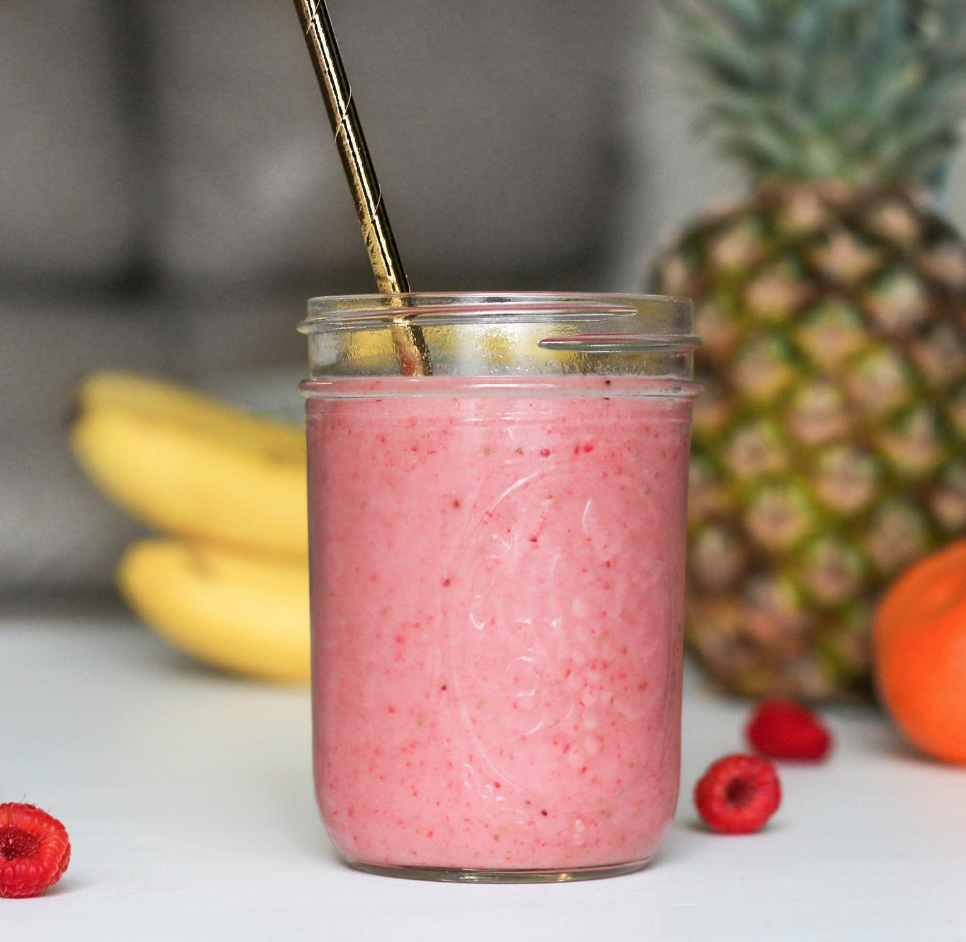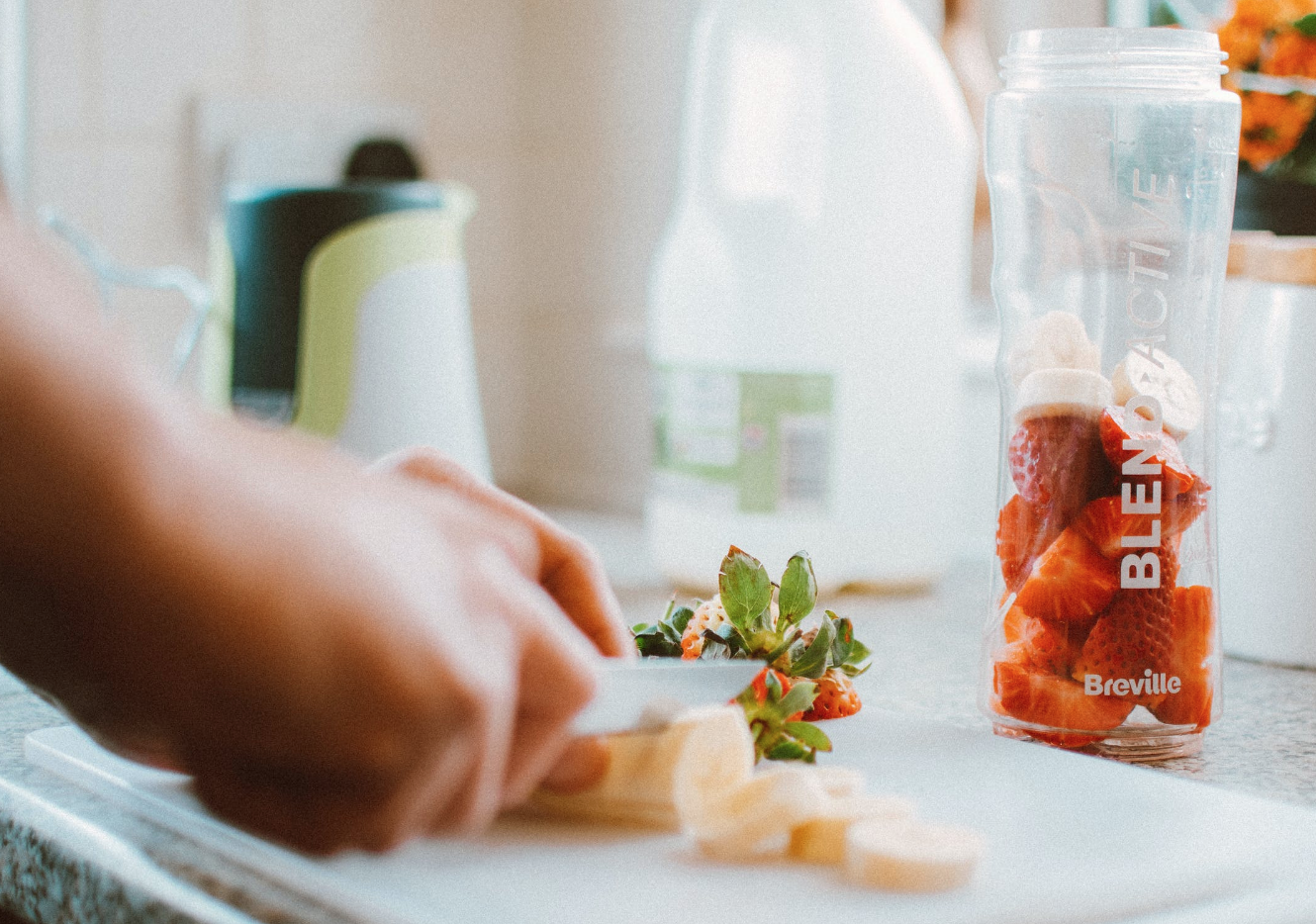Why Juice Cleanses Don’t Work..
Sign Up For Our Newsletter For More Useful Tips!
Receive updates, new livestream dates and special offers!

Our expert dietitian, Lydia Worsley, answers your questions!
The idea of a ‘juice cleanse’ has grown in popularity in recent years, partly due to the following these plans have gained in the health, wellbeing and beauty worlds. Those following a juice cleanse may be doing so with the aim of ‘detoxing the body,’ improving digestion or immune function, weight loss, or having better looking skin, hair or nails.
They may last a few days or weeks and often involve limiting intake to pre-prepared or homemade fruit/vegetable juices and water. That’s it! Usually cereals, dairy foods, meat, fish, and most whole fruits and vegetables are discouraged, as well as caffeine and alcohol.
So what’s the issue?
Unfortunately, these regimens are based on non-existent scientific evidence, and even more concerning is the potential harm they can cause to our health.
While it’s true that our bodies contain toxins and waste products (such as by-products of metabolic reactions and digestion, alcohol, caffeine, chemical pollutants and dead cells and bacteria), the good news is we have the in-built ability to remove these without the need for ‘magic cleansing juices.’ Our kidneys, liver, gut, immune cells and skin are among the many systems that rather efficiently keep the levels of toxins in check and at healthy levels in the body.
But don’t juices ‘cleanse’ the body?
Often, the false premise behind juice cleanses is that they will somehow help eliminate toxins and waste from the body.
The reality is however, that these plans are often counterproductive as they suppress the body’s systems that are already primed to get rid of toxins, especially our liver and gut. In fact, the best way to “detox” the body is to support our natural detoxification systems and to take good care of them in the long term — not to bypass them altogether, as occurs on a cleanse juice plan.
What about weight loss?
Another common misconception is that juice cleanses can help aid weight loss. The reason people may lose a remarkable amount of weight — quickly — on most juice cleanse plans is because they are rapidly losing body water, carbohydrate stores, and intestinal bulk. However, weight will come back a few hours after the plan ends, once returning to normal eating habits as the body can’t stay empty forever!
Interestingly, there is very little fat mass loss — unless the juice cleanse includes fasting for long periods (which, if not done carefully, can be dangerous).
Ultimately, while it feels like a juice cleanse is helping to shape up the body, it’s all an illusion. It involves putting health at risk for very short-term changes that won’t last.
So what are the risks and disadvantages?
When following a juice cleanse plan, there may be all sorts of unpleasant side effects experienced. These include tiredness, irritability, intense hunger or cravings and poor sleep. These point towards signs that the body and brain are being deprived of important energy and nutrients to enable us to function efficiently.
Many also report feeling cold, sluggish and constipated. All evidence of our bodies slowing down as we cut back the important nutrition we require to work optimally.
There may also be very dangerous electrolyte imbalance / deficiency caused by a juice cleanse. Our body’s cells require substances such as sodium, potassium and phosphate, whose levels in the blood are controlled finely. When on a juice cleanse, severe changes in these electrolytes and hydration may occur, which can have implications for organ function, particularly the heart and brain. Certainly things you don’t want to be messing with!
On a very practical level, you may find it terribly inconvenient and incompatible with usual life! How can we enjoy a meal or occasion with loved ones or colleagues when we are only allowed to sip a juice? There is so much joy to be gained from sharing meal and snack times with others, which is completely side-lined during this juice-cleanse approach.
Let’s not forget how far juice cleanses take us away from normal, healthy eating patterns. It is impossible to stick to such a severe, restrictive regimen forever, and it tends to reinforce the ‘dieter mentality’ of being on or off; good or bad; all or nothing. Unfortunately, when thinking and eating/drinking in this way, we tend to never find the ‘middle ground’ or learn how to prepare real, nutritious foods which we can enjoy, guilt-free.
What is a better plan?
The answer to supporting the natural detox processes in our bodies, along with managing our weight in the long-term is a lot simpler than you might imagine! No fads or gimmicks, but rather, think balanced and varied food and drinks, from all the food groups (and no need to drink everything through a straw!)
Remember the following key principles –
– Plenty of fruit and vegetables (at least 5 portions per day). 150ml juice contributes 1 portion and no matter how much you drink, juice only counts as 1 of your servings.
– Opt for high fibre foods like wholegrain cereals, pulses, nuts, seeds, fruit and vegetables to keep you gut happy.
– Choose lean protein at each meal and snack (for example pulses, fish, meat, dairy)
– Moderate amounts of heart-healthy fats are also important from foods like olive oil, oily fish, nuts and seeds,
– Keep well hydrated, aiming for around 2 litres of fluid daily. Try to keep caffeinated drinks to 2-3 maximum, earlier in the day.
– Watch your alcohol intake – less than 14 units per week, spread out evenly, with a few alcohol-free days every week.
So focus on the basics of healthy, varied dietary patterns with fresh, whole foods and good hydration. Nutritious, consistent and simple eating and drinking, rather than extreme, quick fix promises – it really is the way to go!
Lydia Worsley, Registered Dietitian
The Parker Practice
August 2021
Additional References:
British Dietetic Association, May 2019. Detox Diets: Food Fact Sheet (https://www.bda.uk.com/resource/detox-diets.html
Clemens, R., Pressman, P., and Technologists, I. (2005). Detox diets provide empty promises. Food Technology, 59(5), 18.
Dixon, B., (2005) “Detox”, a mass delusion The Lancet Infectious Diseases, 5(5), p261 DOI: 10.1016/S1473-3099(05)70094-3
Harvard Women’s Health Watch (2008) The dubious practice of detox. Internal cleansing may empty your wallet, but is it good for your health? [online] Available at:
www.health.harvard.edu/healthbeat/HEALTHbeat_072208.htm [Accessed 16 August 2021]
NHS Choices (2013) Top diets review for 2014 [online] Available at: www.nhs.uk/Livewell/loseweight/Pages/top-10-most-popular-diets-review.aspx [Accessed 9 August 2021]
Pagoto, S.L. and Appelhans, B.M., (2013) A Call for an End to the Diet Debates JAMA. 310(7):687-688. doi:10.1001/jama.2013.8601.
Science Media Centre (2009) Edzard Ernst comments on Duchy Original detox products [online] Available at: www.sciencemediacentre.org/edzard-ernst-comments-on-duchy-original-detox-products-2/ [Accessed 16 August 2021]
& More
Receive 10 free recipes to your inbox!
Sign up and we will send you 10 free recipes






